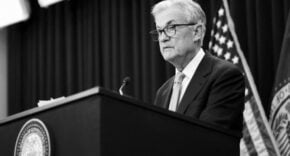Wall Street is betting the Federal Reserve will reverse course and begin slashing interest rates as soon as this summer. Billionaire David Rubenstein is warning that would be a mistake.
“It’s premature to have rate cuts this summer,” Rubenstein, the co-founder and co-chairman of The Carlyle Group, told CNN on Monday.
“The Fed has said its target is 2% inflation. There’s no way in the world you get to 2% this summer. The Fed will look silly if it declares victory at 4%,” said Rubenstein.
After spiking to a four-decade high of 9.1% last year, inflation has cooled off considerably. But Wednesday’s inflation report is expected to show consumer prices are still rising at more than twice the Fed’s target.
Rubenstein, who a quarter-century ago hired Fed Chair Jerome Powell to work in private equity, said it would be “somewhat inflationary” if the Fed is viewed as accepting inflation above its 2% goal.
“People will say the Fed isn’t serious about fighting inflation. Markets will assume inflation is coming back,” said Rubenstein, who recently launched a new PBS series called “Iconic America: Our symbols and stories with David Rubenstein.”
After 10 straight rate hikes, Powell and his colleagues at the Fed opened the door last week to a pause. But Powell pushed back against the idea that the central bank will be lowering rates anytime soon.
“We on the Committee have a view that inflation is going to come down, not so quickly, but it’ll take some time,” Powell said during last week’s press conference. “If that forecast is broadly right, it would not be appropriate to cut rates, and we won’t cut rates.”
The banking crisis and recession fears have led investors to conclude otherwise.
Futures markets are pricing in a 28% chance rates are lower in July than today and a 61% chance in September, according to the CME Group’s FedWatch tool.
Despite pessimism on Wall Street and Main Street, Rubenstein said the US economy is “doing okay.”
“This has been the most predicted recession in the history of recession predictions. People keep saying we’re having it, but it hasn’t shown up,” said Rubenstein, who noted the unemployment rate has gone down since the Fed started raising interest rates in March 2022. “The slowdown is here but I don’t think it’s clear we’re going to have a recession. We might.”
Solving the debt ceiling just in time
One potential catalyst for a recession is the standoff in Washington over raising the debt ceiling.
Rubenstein, a veteran of the Carter administration, expects a resolution to get worked out – eventually.
“There’s an old law in Washington that says the amount of time it takes the government of the United States to solve a problem is exactly equal to the amount of time available,” Rubenstein said, adding that means an agreement just before the X-date.
The Carlyle co-founder said both Democrats and Republicans recognize it would be a “cataclysmic event” for the US to default. The White House has estimated a protracted default would wipe out more than 8 million jobs.
“I don’t think anybody wants to be blamed for it. I suspect Republicans feel they would be more blamed than the Democrats,” Rubenstein said.
Eventually he expects a bifurcated solution where the Biden administration gets a clean debt ceiling increase after agreeing to negotiate over spending cuts.
Rubenstein warned waiting until the last minute risks a repeat of 2011, where markets plunged after a near-default caused an unprecedented US credit ratings downgrade.
“You could see the credit rating go down and interest rates go up,” said Rubenstein.









